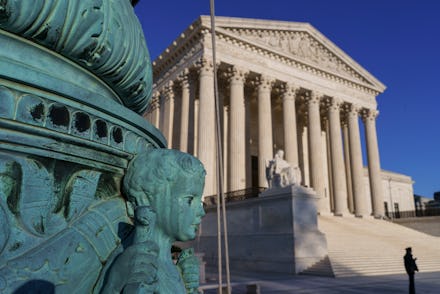What the Supreme Court decision means for workers — especially if you work at a private company

More than 60 million workers just lost the right to take their employers to court in the event of wage theft, sexual harassment and other disputes — all thanks to the Supreme Court.
The nation’s highest court ruled Monday that employees who agree to “mandatory arbitration” clauses in employment contracts lose the right to form class-action lawsuits, one of the most powerful deterrents against corporate misbehavior.
Workers seeking restitution already face an uphill battle. But without the potential of a class-action suit, shady employers will be even more emboldened to risk breaking the law at their workers’ expense, Associate Justice Ruth Bader Ginsberg wrote in her dissent. According to one recent study, binding arbitration clauses are so one-sided in favor of employers that the vast majority of disputes “simply evaporate.”
“It’s not uncommon for employees to have complaints worth a few hundred or a few thousand dollars,” Charlotte Garden, associate professor at the Seattle University School of Law and an expert in labor law, said in an interview. “That’s just not enough money to be able to pursue a complaint in court on an individual basis. That reality is what the class-action mechanism is there for.”
It’s not just wage theft workers have new reason to worry about. Sexual harassment victims in the workplace, in particular, face enormous personal and professional consequences for going public with their accusations. Hypothetically, a group of Weinstein Co. employees could potentially have found safety in numbers by forming a class.
But now, assuming employees signed binding arbitration agreements, individuals would end up being forced to plead their case one by one in front of a mediator of their employer’s choosing.
“It’s giving the green light to people like Harvey Weinstein,” Benjamin Dictor, an attorney who represents labor unions, said. “An employer [can now] force employees into binding arbitration, where they know they have significantly more power than the employee and significantly more resources and can hide their misdeeds.” (Editor’s note: Dictor’s clients include the Mic editorial union.)
Why it just became impossible for millions to take their employers to court
The core of the Supreme Court ruling has to do with an inconsistency in the National Labor Relations Act, which Congress enacted in 1935. In addition to establishing the legal right to form a union, the NLRA also granted workers the right to “engage in other concerted activities for the purpose of ... mutual aid or protection.”
That last bit is a little vague — what, exactly, did lawmakers mean by “concerted activities”? That question became even more significant several decades later, when a tweak to the legal code gave rise to the modern class-action lawsuit. Does “other concerted activities” include class-action lawsuits, even when a binding arbitration agreement is involved? On Monday, the Supreme Court decided the answer was no.
Writing for the majority, Associate Justice Neil Gorsuch noted that class actions did not exist in 1935, meaning Congress hadn’t intended to grant that right to workers after all. That’s a big departure from how courts have interpreted labor law in the past, Dictor said, adding that lawmakers who lived through the industrial revolution likely anticipated the workforce would change. By limiting remedies to what was available to workers in 1935, the court may be opening the door for employers to contest several generations of worker protections.
For example, the National Labor Relations Board in 2014 held that employees could use work email to organize union events. Garden said decisions like that — as well as other disputes that have yet to arise in the next generation of workplace concerns — may be endangered by this new standard.
“The decision will make it impossible as a practical matter for many workers to find any avenue for redress by violation from companies they work for,” Garden said. “Employers will be anxious to use some of the language in this decision about interpreting the scope of the NLRA. I could imagine employers saying [that] under Gorsuch’s view, [work email] isn’t covered, and therefore the Obama-era NLRB decision could be reversed.”
The one thing workers should do immediately
In the meantime, it’s now even more important for employees to read their employment contracts in full, particularly to see if they’re waiving their right to bring an employer to court should that employer break the law. If you’ve already signed a binding arbitration agreement, it’s still worth consulting with an employment attorney about your options.
“All employment agreements that matter are unique,” Dictor said. “There could be any number of reasons why such an agreement might be invalidated, or invalid on its face.”
Maybe there was a time period in the contract and your employer forgot to update it, for example. Or perhaps the nature of your work has changed significantly enough that your previous contract should be rendered null and void. In any event, pay close attention to the fine print when it comes to labor contracts from now on.
Sign up for The Payoff — your weekly crash course on how to live your best financial life.